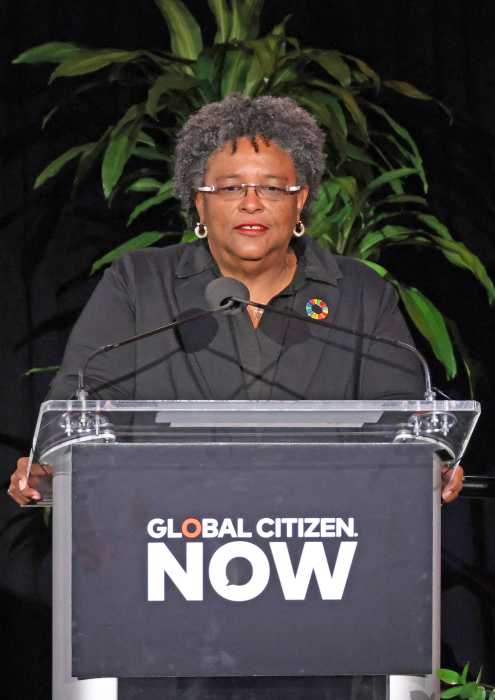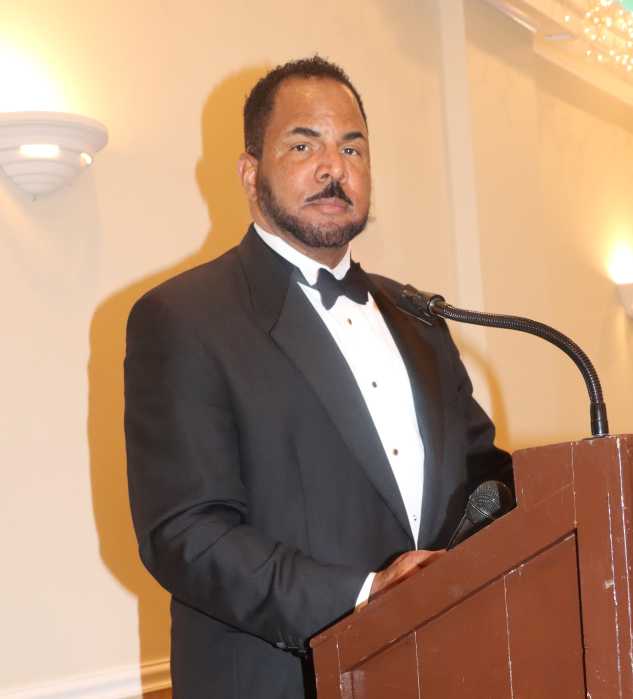As the United Nations General Assembly last Saturday wrapped up its 70th Session Debate, Caribbean Community (CARICOM) leaders and foreign ministers, one after the other, did not hesitate to the tell the global community the major impact climate change is having on their already beleaguered economies.
From the mountains to the seas, from the Caribbean to the Arctic, Caribbean leaders noted that global warming is a significant problem for all, stating, however, that their small countries are especially at risk.
They, thus, urged industrialized nations to do more to combat the phenomenon, saying that urgent support for Least Developed Countries (LDCs) and Small Island Developing States (SIDS) is paramount in combatting “the deadly capacity” of climate change.
Barbados’ Prime Minister Freundel Stuart emphasized that just as the single existential threat of a global war had led to the founding of the United Nations, climate change must unite the international community again.
He said CARICOM countries are clear that the upcoming Climate Conference in Paris in December should result in concrete commitments to curb greenhouse gas emissions and restrain the global average temperatures.
For those who had framed the UN Charter, the cessation of global war was the single existential threat, Stuart noted.
But he said while that threat remained, “it would be to our peril were we not to accord to climate change the same deadly capacity”.
Stuart said CARICOM countries are clear that the Climate Conference in Paris should result in a commitment by all parties to curb greenhouse gas emissions to hold global average temperature increase below 1.5oC above pre-industrial levels; cooperate in taking action; submit to regular 5-year cycles of reporting, verification and updating mitigation commitments; and support SIDS and LDCs.
A single natural or manmade disaster could have catastrophic economic, infrastructure and humanitarian effects on a national scale, the Barbadian leader warned.
St. Vincent and the Grenadines’ Prime Minister Dr. Ralph Gonsalves said the intensifying vulnerability of his country and its neighboring islands to climate change is “clear in the alternating bouts of drought and flooding that have caused hundreds of millions of dollars in loss and damage in my country in successive years.
“Our existential struggles in the face of climate change inform our posture in the frustratingly meandering negotiations to arrive at a legally-binding agreement within the parameters of the United Nations Framework Convention on Climate Change,” he told the global body.
“We are two months away from a deadline for reaching such an agreement at COP 21 in Paris, but the precariousness of our global plight is not matched by the ambition of our partners,” Gonsalves added. “Indeed, the posturing and recalcitrance of some major emitters suggest that COP 21 may be yet another empty diplomatic dance that prioritizes process over progress.”
Gonsalves said St. Vincent and the Grenadines and other islands and coastal states will not settle for any agreement that does not “comprehensively and unambiguously bind major emitters to deep and ambitious emissions cuts, and meaningful financing commitments to fund adaptation and mitigation efforts in the most vulnerable countries.”
St. Kitts and Nevis’ Prime Minister Timothy S. Harris said that the twin-island federation is a regional leader in renewable energy development, but added that devastating floods, persistent drought and coastal erosion are threatening the economy and food security of SIDS.
Underscoring the unsettling challenge to their vital tourism industry and the devastating loss of entire coastal communities, Harris, in his maiden address as prime minister, called on the world community to do more to help those States adapt and to also consider disaster response, recovery and insurance for those efforts.
Noting the importance of access to global funding mechanisms, he said that, for too long, SIDS have been “hamstrung” by complex application procedures.
In this regard, Harris welcomed the Green Climate Fund board’s recent decision to aim for a floor of 50 percent of the adaptation allocation for particularly vulnerable countries.
Suriname’s Minister of Foreign Affairs Niermala Badrising said her country “continues to witness the first effects of climate change,” stating that Suriname is home to 239 miles of low-lying coastline and is listed as “one of the seven most vulnerable countries with respect to the effects of sea level rise.”
She said Suriname, therefore, looks forward to a new global agreement at the major United Nations Climate Change Conference, known as COP-21, in Paris.
The conference should include specific actions to mitigation and adaptation commitments, Badrising said.
“It will be necessary to give priority to the availability of financial resources, especially for Small Island Developing States and countries with a low-lying coast in order to effectively implement necessary measures,” she urged.
In this regard, Badrising said Suriname welcomes further implementation of the Green Climate Fund, including the ongoing efforts towards creating a logical framework model for REDD+ financing.
Within the context of the Intended Nationally Determined Contribution (INDC), she said the CARICOM member-state will submit its new climate action plan to the United Nations Framework Convention on Climate Change (UNFCCC).
Against the backdrop of her country’s recent destruction by Tropical Storm Erika, Dominica Foreign Affairs Minister Francine Baron has urged the international community take action on climate change.
In preparing to address the 70th Session of the UN General Assembly Debate, Baron said her delegation decided to highlight “the challenges brought about by the increasing concentration of greenhouse gases in the atmosphere and the resulting changes in global climate.
“Climate change is a major threat posed to our planet that has a disproportionately high impact on Small island Developing States,” she said.
“Our concerns have magnified since Aug. 27, 2015,” she said, noting that Tropical Storm Erika brought “up to 18 inches of rain in 16 hours” in Dominica, with rapid flash flooding and numerous landslides.
Some 13 people have been confirmed dead, and 17 are still missing as a result of the storm, said Baron, adding that 90 per cent of Dominica’s Gross Domestic Product (GDP) has been wiped out.
World Bank estimates indicate a loss of US$483 million in infrastructure, Baron said.

























